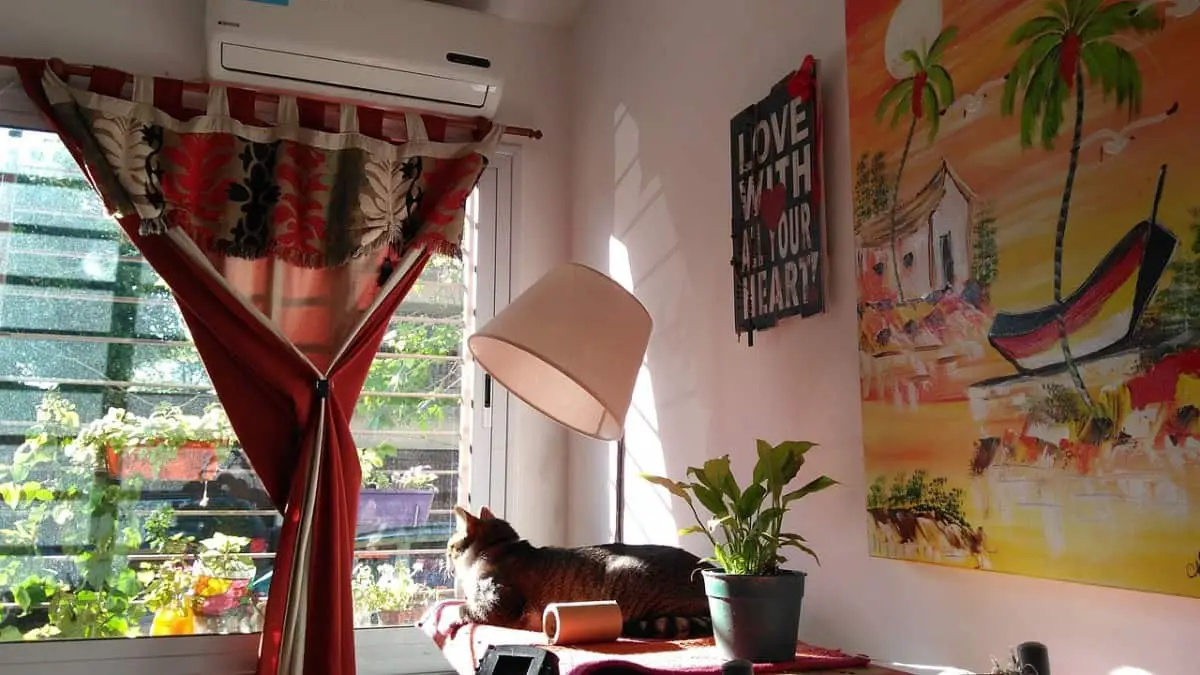Aggression tops the list of the reasons why some cat owners give up their cats. It is the second behavioral issues cat owners identify. However, cats seem so friendly and so it is often frightening when a cat suddenly becomes aggressive. This is a guide to help you understand forms of aggression and aggressive meowing in cats. Read on to discover cat communication even better.
In order for you to tell whether your cat is feeling aggressive, pay attention to her tone as well as body language. So what triggers aggression in cats?
Forms of cat aggression and aggressive meowing
Aggression can take various forms based on the context. Well, in some cases, your cat will warn you through aggressive meowing which may include hissing and growling. At the same time, paying attention to your cat’s body language is always going to let you in on what your kitty is feeling.
Below, we are going to outline the different forms of aggression in cats. We will also explore how to tell when your cat is feeling agitated. The forms of cat aggression include the following:
- Territorial aggression
- Play-induced aggression
- Redirected aggression
- Pain-induced aggression
- Petting-induced aggression
- Maternal aggression
- Predatory aggression
Territorial aggression in cats
Have you ever come home and your cat acted aggressively? Well, cats are territorial creatures. They want a sense of belonging and so they will protect their space and even you. Cat owners running multi-cat homes can tell you more about territorial aggression, especially amongst cats.
For instance, each cat in the household will identify her bowls. She could get angry if another cat tries to use the same bowl. It could even lead to a catfight. In other cases, your cat could behave aggressively towards you if you have been holding a foreign cat.
Note that cats have a strong sense of smell. This means that she is able to pick another cat’s scent from you. I mean, how could you? She will react aggressively because she feels like you are crossing her boundaries.
She could also display this form of aggression towards a stray cat roaming outside. Be careful especially if your cat cannot reach the aggressor. It could turn into redirected aggression.
Also, understand that your cat will rub her scent against you. It is a territorial behavior amongst them. She wants to feel familiar to you which also will strengthen your bond with her.
Redirected Aggression in Cats
Sometimes, your cat will display aggression out of nowhere. I mean, your bundle of fur could be resting and attack you when you approach her. What causes this type of aggression? Unfortunately, a cat is likely to direct her aggression towards you or other family members. First of all, you must understand that this is purely unintentional.
It could be as a result of frustration from an earlier event. For instance, she could spot a dog or another cat on the outside. She wants to chase them away but unfortunately, she cannot reach the aggressor. Now, should you approach her, or try to pet her, she is going to bite or even injure you through her claws. How sad?
You may not see it coming and thus I suggest you pay attention to her body language. This way, you can always tell when your cat is in a good mood or not.
Play induced aggressive meowing in cats

We all know how excited kittens get when we play with them consistently. However, sometimes she might go too far and end up injuring you. When she starts using her teeth and claws during play, it is probably time to stop playing.
Let me take you back to her natural behavior. When kittens play with their mates, they learn how to inhibit aggression. I mean, she will learn that biting a playmate is unacceptable. Usually, they learn this from their mother.
When a cat uses her teeth or claws to injure her mother or siblings, she gets punished. Others will not want to play with her. Therefore, she will grow up knowing that biting and using claws is not part of the play.
Unfortunately, not all cats get to learn this. Some are adopted at a very young age while others are orphaned. It means that they do not get to learn some of these things early enough. Do not be surprised if a cat gets too excited and bites or scratches you during playtime.
In the next section, we shall explore some of the most effective measures to curb play-induced aggression.
Petting-induced aggression
Funny enough, it is possible to upset your cat by petting her. How ungrateful? You might wonder. However, on most occasions, we do not care less to know our cat’s tickle spots. Even you could get irritated if someone rubbed the same spot in your body over and over again.
A cat will exhibit aggressive meowing even when you are petting her. You should, therefore, be observant while petting her. Just as with human beings, your cat will also have different petting spots. It is up to you to identify them.
I will give you one tip to petting a cat, only do it when she is in a good mood. Secondly, she might enjoy it when you give her a head scratch or under the chin. However, if she turns towards where your hand it while exposing her teeth or claws, please stop petting her.
Also, you can only pet or cuddle her for a few minutes before she goes her way. Well, cats do love attention but also they appreciate some space.
Defensive Aggression
When a cat feels cornered, and cannot escape, she will display a defensive type of aggression. At this point, she is ready to attack her oppressor. You should probably stay away from her when she is this aggressive. Defensive aggression is often fuelled by fear and your cat feels like she has to defend herself against you or her opponent.
It is also characterized by aggressive meowings such as hissing and growling. You must alleviate the situation causing her fear and also leave her alone until she is calm. Avoid approaching a cat when she has no room for escape. Even when you mean no harm, she could feel threatened and attack you instead.
Maternal Aggression in cats
Mothers have these natural instincts to protect their young ones. Cats are not left behind either. A cat will scratch you immediately you try to harm her litter. I mean, she won’t even hesitate to do so. Therefore, be careful around a nursing cat.
Cats hate it when we pick up or even try to pet her kittens. She might, therefore, react aggressively from the point of her maternal instincts.

Pain induced form of aggressive meowing in cats
If your cat has suddenly started acting aggressively, it could be that she is ill or in pain. While cats enjoy it when we pet them, she could react aggressively especially if you try to pick her up or pet her. If she, for instance, has an injury you are unaware of, she could bite you if you touch it during grooming or petting.
Thereby, you must remain cautious with her. Spend quality time with your cat. It is going to help you determine when she feels ill or is in discomfort. If you suspect that she is ill, do not hesitate to check with your vet. He/she will be able to determine what is wrong with your kitty.
Predatory Aggression
This type of cat aggression is common in bored cats. Well, let’s go back a little bit, and look at cats as natural hunters, because that is what they are. In the wild, the cat would hunt and fetch for herself. However, domestication tends to erase all this only that we cannot change nature. Often, your cat will exhibit her predatory instincts.
Well, you could be walking down the hallway and she will pounce on your ankle. She could also jump at your hand as you move it. It is usually a predatory behavior. You must provide enough stimulation for your cat to meet her predatory nature. For instance, you could buy a mouse-like toy. This will give your chance to meet her predatory needs.
Also, you could hide tasty treats in the house and let your cat find them. She is going to use her sense of smell to hunt down the treats.
How to deal with aggressive meowing in cats
Before you come to the conclusion that your cat is displaying aggressive behavior, you must have sat down and observed her. It does not have to be aggressive meowing as you can tell an agitated cat from her body language. Let us briefly outline what to expect from an aggressive cat:
- ears turned back or flattened against the head
- Dilated pupils and she could even stare at you
- Curled into a small ball
- Trying to look bigger than she is with fur standing off her body
- Lashing tail and crouching body posture
Well, once you identify that your cat is behaving aggressively, it is time to solve this problem once and for all. Try the following steps and you will be able to contain her:
Check with your vet for any illnesses
This should be the very first step you take. Your vet will help you rule out any medical reasons why your cat is aggressive. Also, they will recommend treatment if your cat is ill.
Watch out for her body language
Well, you should be keen on your cat’s body language as well as vocalization. We have discussed some of the body languages to pay attention to. Also, if your cat is hissing or meowing in an aggressive manner, keep away from her.
Leave her alone to settle
When you suspect that your cat is feeling a bit of aggressive, leave her alone. It does not matter whether you were petting her or not. She needs to calm down and you should let her be in the meantime.
Separate fighting cats
If you are running a multi-cat, you are going to occasionally witness a few catfights around the house. It is accompanied by aggressive reactions that could leave both your cats injured. Stop a catfight immediately it begins.
However, you are going to have to be careful while doing so. Do not use your bare hands to try and separate fighting cats. Use a sofa cushion instead to avoid getting injured in the process.
See a professional behaviorist or watch this video for aggressive cat meowing
If you cannot seem to understand where your cat’s aggression is coming from, I suggest you see a cat behaviorist. Let them examine and help you determine the cause of the aggression problem. Do not rush to give up your kitty when you can solve aggression.
In conclusion, cat aggressive meowing is not unheard of. It is up to you to determine the cause of aggression and thereafter find a quick solution. It is my hope that the points addressed above will help you understand your cat even better.
[su_box title=”Affiliate Disclosure”]This website is supported by its readers. Please assume that all links are affiliate links. If you make a purchase from one of the links we will make a commission from Amazon. Thank you.[/su_box]





